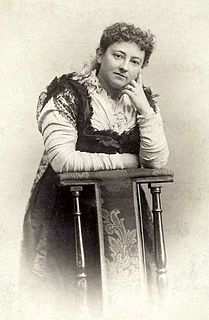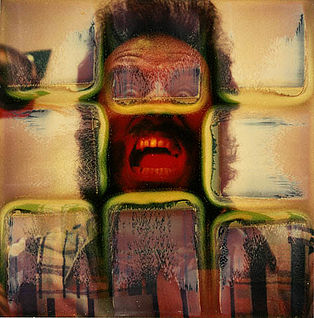A Quote by Virginia Woolf
Tell me", he wanted to say, "everything in the whole world" - for he had the wildest, most absurd, extravagant ideas about poets and poetry - but how to speak to a man who does not see you? who sees ogres, satyrs, perhaps the depth of the sea instead?
Related Quotes
One can say that the disaffection is still a lingering naiveté about, not the place of poetry in the world, but - how to say this - the moral and intellectual presence of poets in the world. And while this may seem an old conversation to many poets who roll their eyes and say, "Here we go again about the function of poetry," I think that conversation, about poetry as an engaged art in a world that is full of regression or still lacking in progress, is still really not well-developed. It's almost an avoided conversation.
That’s what i love about poetry. The more abstract, the better. The stuff were your not sure what the poets talking about. You may have an idea, but you cant be sure. Not a hundred percent. Each word, specifically chosen, could have a million different meanings. Is it a stand-in ?a symbol for another idea? Does it fit into a larger, more hidden, metaphor? ...I hated poetry until someone showed me how to appreciate it. He told me to see poetry as a puzzle. Its up to the reader to decipher the code, or the words, based on everything they know about life and emotions.
There's a sameness about American poetry that I don't
think represents the whole people. It represents a poetry
of the moment, a poetry of evasion, and I have problems
with this. I believe poetry has always been political, long
before poets had to deal with the page and white
space . . . it's natural.
Who’s to say that it takes something like a drug to mess with your perception of reality? How did Hitler deceive a nation? How can one group of people look at the world and see one thing, and another see something completely different? One sees a town, another sees a desert. One sees beauty, another sees chaos.” The skin of this world,” he said quietly.
We are sort of not at the level of entertainment that the Western world is. Everything we see on the play in the screen, we read, we take serious. We take that it speaks to me. And so wonderful to see how the Johannesburg, South African audiences will say: What does it say to me? What does it make me feel? Why am I celebrating it?
Poetry is the most informative of all of the arts because everything comes down to poetry. No matter what it is we are describing, ultimately we use either a metaphor; or we say "that's poetry in motion." You drink a glass of wine and say, "that's poetry in a bottle." Everything is poetry, so I think we come down to emotional information. And that's what poetry conveys.
I don't know that I had a sense that there was such a thing as "the poetry world" in the 1960s and early 70s. Maybe poets did, but for me as an onlooker and reader of poetry, poetry felt like it was part of a larger literary world. I mean, even the phrase "the poetry world" reflects a sort of balkanization of American literary and artistic life that has to some extent happened since then.
Who can really say how decisions are made, how emotions change, how ideas arise? We talk about inspiration; about a bolt of lightnng from a clear sky, but perhaps everything is just as simple and just as infinitely complex as the processes that make a particular leaf fall at a particularmoment. That point has been reached, that's all. It has to happen, and it does happen.
I'm not going to tell people how to write, but we do have a skill set, and the more we put ourselves out into the world as poets, as a sort of poet of the tribe, as representatives of metaphor, and try to claim space for metaphor in the inner life, that's going to be important and be helpful to poetry and bring a tension for poets writing about whatever they choose.
I'm looking back at what I did and how it works. In a sense I'm waiting to see how people will respond. I'm waiting to see how you respond, without asking me to tell you what I think about it, because it is your job to give me an idea of how you go about thinking about this work. And if it's too absurd then, you know, I'll kick you out!
Poets and songwriters speak highly of spring as one of the great joys of life in the temperate zone, but in the real world most of spring is disappointing. We looked forward to it too long, and the spring we had in mind in February was warmer and dryer than the actual spring when it finally arrives. We'd expected it to be a whole season, like winter, instead of a handful of separate moments and single afternoons.



































